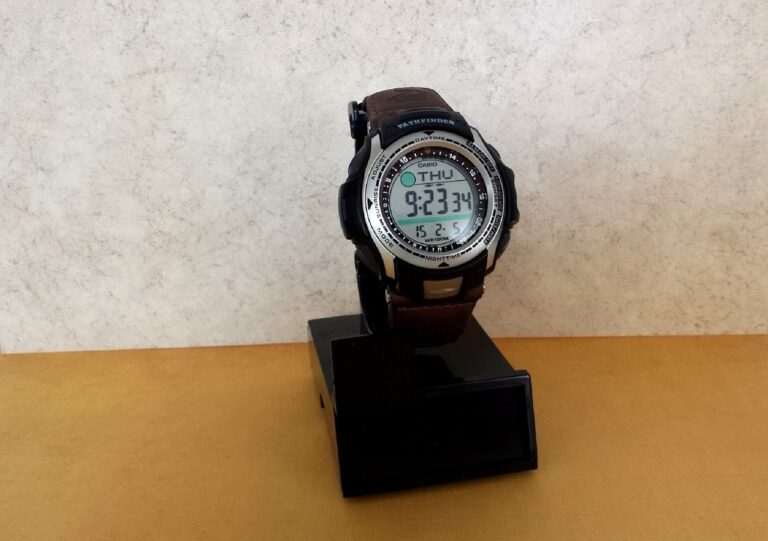Adventure Travel Safety Tips: Staying Safe While Exploring the Great Outdoors
Adventure travel offers an exhilarating escape from the mundane routine of daily life, but it also comes with its fair share of risks that should not be underestimated. One of the most common risks in adventure travel is injuries sustained from physical activities such as hiking, rock climbing, or white-water rafting. These activities can be physically demanding and require a certain level of skill and caution to be performed safely.
Another common risk in adventure travel is getting lost or disoriented in unfamiliar terrain. Whether navigating dense forests, remote deserts, or mountainous regions, the possibility of losing one’s way is a real concern. Without proper navigation skills or equipment, travelers can easily find themselves in dangerous predicaments, especially when faced with unforeseen weather conditions or natural obstacles.
Understanding the Terrain and Environment
When embarking on an adventure travel experience, it is crucial to have a thorough understanding of the terrain and environment you will be encountering. Terrain can vary significantly, from rugged mountains to dense forests to arid deserts, each presenting its unique challenges and obstacles. By familiarizing yourself with the topography and features of the land, you can better prepare for the physical demands and navigation requirements of the journey.
In addition to terrain, the environment plays a vital role in adventure travel safety and enjoyment. Factors such as weather patterns, wildlife habitats, and vegetation can impact your experience in unexpected ways. Being aware of potential risks, such as sudden weather changes or encounters with wildlife, can help you make informed decisions and adapt your plans accordingly. Taking the time to research and understand the terrain and environment before setting out on your adventure will not only enhance your overall experience but also contribute to a safer and more enjoyable journey.
Essential Gear and Equipment for Safety
When embarking on any adventure travel, having the right gear and equipment is essential for your safety. One of the most critical pieces of equipment to have is a reliable first aid kit. This kit should be tailored to the specific activities you will be engaging in and should include items for treating minor injuries, such as cuts, scrapes, and blisters.
In addition to a first aid kit, other essential gear includes a headlamp or flashlight with extra batteries, a multi-tool for quick repairs, and a map and compass for navigation. It is also crucial to carry enough food and water for the duration of your trip, along with a water filtration system for emergencies. Proper gear and equipment not only enhance your safety but also increase your preparedness for any unexpected situations that may arise during your outdoor adventures.
Emergency Communication and Navigation Tools
When embarking on any adventure travel, it is crucial to be prepared with the necessary tools for communication and navigation in case of emergencies. Having a reliable means of communication, such as a satellite phone or a Personal Locator Beacon (PLB), can be a literal lifesaver in remote or challenging terrains where cell service is non-existent. These tools allow travelers to signal for help in case of an emergency and can significantly expedite rescue operations.
In addition to emergency communication devices, proficient navigation tools are essential for ensuring safety and preventing getting lost in unfamiliar surroundings. Carrying a GPS device, compass, and maps of the area you are exploring can provide valuable assistance in orienting yourself and finding your way back to safety. Familiarizing yourself with how to use these navigation tools before setting out on your adventure can further enhance your preparedness and confidence in navigating various terrains.
Proper Clothing and Footwear for Outdoor Activities
When embarking on outdoor activities, choosing the right clothing and footwear is essential for your comfort and safety. Opt for moisture-wicking and breathable fabrics to regulate your body temperature and keep you dry during physical exertion. Additionally, layering your clothing allows you to adjust to changing weather conditions and stay protected from the elements.
Investing in durable and supportive footwear is crucial to prevent injuries and provide stability on varying terrain. Select footwear with good traction to avoid slips and falls, and ensure they are properly broken in before embarking on longer excursions to prevent blisters and discomfort. Remember that protecting your feet is paramount for your overall enjoyment and success during outdoor adventures.
Hydration and Nutrition for Sustained Energy
Proper hydration is essential when engaging in outdoor activities to maintain optimal performance and prevent dehydration. It is recommended to drink water consistently throughout the day and not just when feeling thirsty. Electrolyte-rich drinks can also help replace vital minerals lost through sweating, especially during intense physical exertion.
Nutrition plays a crucial role in sustaining energy levels during adventure travel. Pack nutrient-dense snacks like trail mix, energy bars, and fresh fruits to fuel your body during hikes or other outdoor pursuits. Incorporating a balanced mix of carbohydrates, proteins, and healthy fats into your meals can help you maintain endurance and recover faster after challenging physical activities.
Importance of Proper Training and Skill Development
Proper training and skill development are essential aspects of ensuring a safe and enjoyable adventure travel experience. Without the necessary expertise and know-how, adventurers may find themselves in precarious situations that could have been avoided with adequate preparation. From mastering basic navigation techniques to honing advanced survival skills, investing time and effort into training can make a significant difference in handling unexpected challenges in the outdoors.
Moreover, acquiring proper training and developing relevant skills not only enhances personal safety but also contributes to the overall enjoyment of outdoor activities. Being well-versed in wilderness first aid, outdoor cooking methods, and efficient gear usage can empower adventurers to immerse themselves fully in their surroundings with confidence and peace of mind. As such, dedicating oneself to continuous learning and skill enhancement is a valuable investment for anyone venturing into the great outdoors.
Wildlife Safety and Encounters
When venturing into the great outdoors, encounters with wildlife can be thrilling and awe-inspiring. However, it is essential to remember that wild animals are unpredictable, and it is important to always maintain a safe distance and avoid approaching them closely. Respecting their natural habitat is crucial for both your safety and the well-being of the wildlife.
In the event of a wildlife encounter, remain calm and back away slowly without turning your back on the animal. Making loud noises or sudden movements can startle the animal, leading to a potential threat. It is advisable to carry bear spray or another appropriate deterrent in areas where encounters with large predators are more common. Remember, we are guests in their homes, and it is our responsibility to coexist harmoniously with the wildlife around us.
Weather Preparedness and Monitoring
Weather preparedness is essential for any outdoor adventure, as weather conditions can change rapidly and have a significant impact on safety. It is crucial to check the weather forecast before heading out, but always be prepared for unexpected weather changes. Carry appropriate gear like raincoats, extra layers, and sun protection to stay comfortable and safe in various conditions.
Regularly monitoring the weather during your outdoor activities is key to staying informed and making smart decisions. Keep an eye on the sky for signs of changing weather, such as dark clouds, strong winds, or sudden drops in temperature. Utilize technology like weather apps or a portable weather radio to receive updates and alerts while on the trail. Being proactive and responsive to weather changes can help prevent dangerous situations and ensure a successful outdoor experience.
Responsible Travel Practices for Environmental Conservation
Responsible travel practices are essential for preserving the natural beauty of our planet. When exploring the great outdoors, it is important to leave no trace by properly disposing of waste and recycling whenever possible. By respecting the environment and its inhabitants, we can ensure that future generations can also enjoy these breathtaking landscapes.
Additionally, choosing eco-friendly accommodations and transportation options can significantly reduce our carbon footprint while traveling. Opting for sustainable tour operators and supporting local conservation efforts are simple yet impactful ways to contribute to environmental conservation. By being mindful of our actions and making conscious decisions, we can make a positive difference in protecting the Earth’s fragile ecosystems.
What are some common risks to be aware of in adventure travel?
Common risks in adventure travel include rugged terrain, unpredictable weather, wildlife encounters, and remote locations with limited access to help in case of emergencies.
How important is it to understand the terrain and environment before embarking on an outdoor adventure?
Understanding the terrain and environment is crucial for ensuring safety during outdoor activities. It helps in planning routes, assessing risks, and making informed decisions while exploring unfamiliar areas.
What gear and equipment are essential for safety during outdoor activities?
Essential gear and equipment for safety include proper footwear, navigation tools, emergency communication devices, first aid kits, and appropriate clothing for the weather conditions.
How can one stay hydrated and maintain energy levels during outdoor activities?
Staying hydrated and maintaining energy levels can be achieved by carrying an adequate supply of water, electrolyte drinks, and high-energy snacks. It is important to drink water regularly and refuel with nutritious food to sustain energy levels.
Why is proper training and skill development important for outdoor activities?
Proper training and skill development are important for enhancing safety and enjoyment during outdoor activities. Developing skills such as navigation, first aid, and survival techniques can help in handling emergencies effectively.
What should one do in case of a wildlife encounter during outdoor activities?
In case of a wildlife encounter, it is important to remain calm, avoid sudden movements, and slowly back away from the animal. Do not approach or feed wild animals, and always respect their habitat.
How can one prepare for weather changes during outdoor activities?
Weather preparedness involves monitoring weather forecasts, carrying appropriate clothing layers, and being prepared for sudden changes in weather conditions. It is important to stay informed and take necessary precautions to avoid weather-related risks.
What are some responsible travel practices for environmental conservation?
Responsible travel practices for environmental conservation include minimizing waste, respecting wildlife and natural habitats, sticking to designated trails, and supporting local conservation efforts. It is important to leave no trace and leave the environment as pristine as possible.







